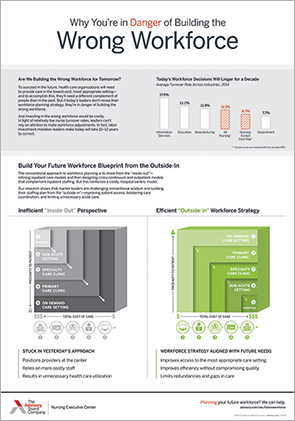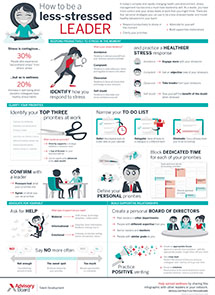Auto logout in seconds.
Continue LogoutEditor's note: This story was updated on July 31, 2018.
We love to complain about how busy we are, touting our lack of leisure time like a badge of honor. Research shows busyness is actually considered a status symbol, with less time to spare translating into greater prestige.
Here are 4 ways to be a less-stressed leader
Having leisure time was once seen as the height of social status. But that's no longer the case, as we now live in "knowledge-intensive economies," according to Silvia Bellezza, assistant professor of marketing at Columbia University Business School; Neeru Paharia, assistant professor of marketing at Georgetown University; and Anat Keinan, associate professor of marketing at Harvard University Business School.
"In such economies, individuals who possess the human capital characteristics that employers or clients value (e.g., competence and ambition) are expected to be in high demand and short supply on the job market," the researchers explain. "Thus, by telling others that we are busy and working all the time, we are implicitly suggesting that we are sought after, which enhances our perceived status."
The researchers conducted a series of experiments to gauge the influence of busyness on status. They found that portraying busyness was consistently linked to higher social status in a number of hypothetical scenarios comparing a person who:
- Has a leisurely lifestyle versus one who works long hours;
- Orders from a grocery delivery service versus shopping at a control brand store or a high-end store; and
- Uses a hands-free headset, commonly associated with multitasking, versus wearing a pair of headphones.
"In general, we found that the busy person is perceived as high status, and interestingly, these status attributions are heavily influenced by our own beliefs about social mobility," the authors write. "In other words, the more we believe that one has the opportunity for success based on hard work, the more we tend to think that people who skip leisure and work all the time are of higher standing."
But the busiest workers aren't necessarily the best ones. Managers may be inclined to view their busiest employees as the most valuable, but Bellezza encourages managers to "shift as much as possible their attention to what people are producing, rather than how long they're in the office" (Romm, "Science of Us," New York Magazine, 12/19; McGregor, "On Leadership," Washington Post, 12/20; Bellezza et al., Harvard Business Review, 12/15).
Next, here are 4 ways to be a less-stressed leader
Stress is endemic in today’s health care workforce, but the good news is that leaders have much more control over their stress levels at work than they might think. The most effective leaders take steps to proactively keep their own stress in check—while modeling healthy habits for their teams.
Use this infographic to review effective stress management strategies that can help you become a less-stressed leader.
Don't miss out on the latest Advisory Board insights
Create your free account to access 1 resource, including the latest research and webinars.
Want access without creating an account?
You have 1 free members-only resource remaining this month.
1 free members-only resources remaining
1 free members-only resources remaining
You've reached your limit of free insights
Become a member to access all of Advisory Board's resources, events, and experts
Never miss out on the latest innovative health care content tailored to you.
Benefits include:
You've reached your limit of free insights
Become a member to access all of Advisory Board's resources, events, and experts
Never miss out on the latest innovative health care content tailored to you.
Benefits include:
This content is available through your Curated Research partnership with Advisory Board. Click on ‘view this resource’ to read the full piece
Email ask@advisory.com to learn more
Click on ‘Become a Member’ to learn about the benefits of a Full-Access partnership with Advisory Board
Never miss out on the latest innovative health care content tailored to you.
Benefits Include:
This is for members only. Learn more.
Click on ‘Become a Member’ to learn about the benefits of a Full-Access partnership with Advisory Board
Never miss out on the latest innovative health care content tailored to you.


